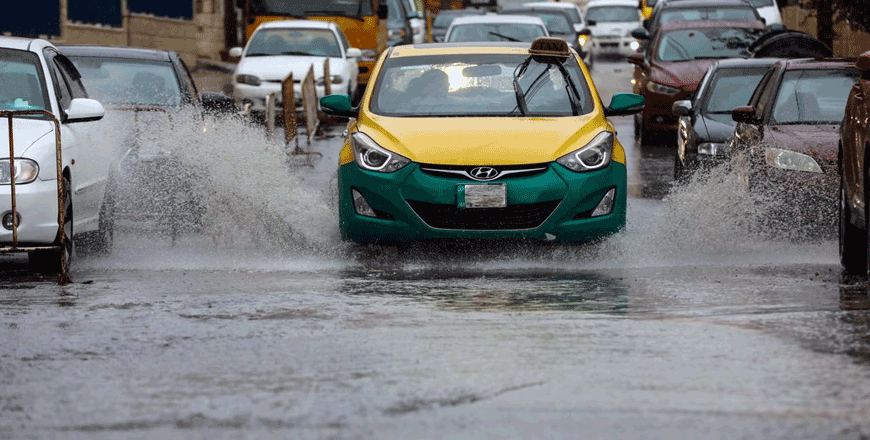AMMAN — The Jordan Meteorological Department (JMD) on Saturday reported that the 2024/2025 rainy season remains below average in most parts of the Kingdom, although recent rainfall between March 19 and 22 slightly improved total amounts by 1 to 7 per cent of the seasonal average.
Among the highest recorded rainfall amounts, Ras Munif in Ajloun received 37.9 millimetres (6 per cent of its seasonal average), followed by Irbid with 32mm (6 per cent).
In central Jordan, Salt recorded the highest rainfall with 32.6mm (7 per cent), while in Amman, the University of Jordan station recorded 24.8mm (5 per cent) and Al Hussein Park station recorded 24mm (5 per cent).
In the south, the Raba station in Karak recorded the highest rainfall of 11.9mm (4 per cent), while other areas received little or no rainfall.
The Kingdom was affected by a cold and humid air mass recently, which caused a "significant" drop in temperatures. Heavy rain fell in the northern and central regions, with scattered showers in the south and east.
Spokesperson of the Ministry of Water and Irrigation Omar Salama said that water storage in Jordan's dams reached 97 million cubic metres, or 33 per cent of the total capacity, showing a decrease compared to last year's 141 million cubic metres, some 50 per cent of their capacity.
Salama added that the recent weather conditions had little effect on the water levels in the dams and that the current water reserves remain relatively low.
